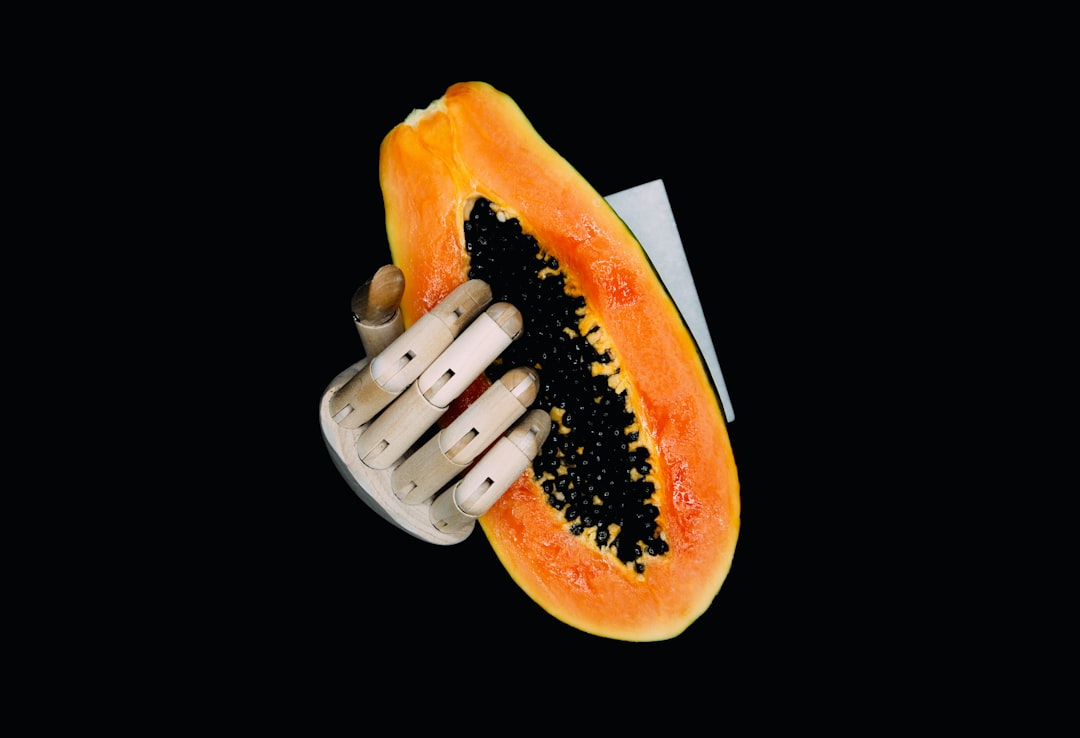As a topic that has been considered taboo for centuries, onanism has always been shrouded in mystery, guilt, and shame. It’s a complex concept that has been debated by religion, ethics, and morality. With so many different views and opinions, it’s hard to know what the right approach is. In this article, we will delve deeper into the topic of self-pleasure and take a closer look at the various religious, ethical, and psychological beliefs surrounding it. Join us as we explore this fascinating topic and uncover the hidden truths behind onanism.
Unpacking the Concept of Onanism

As a youth pastor, you have likely heard the term “onanism” used in discussions about masturbation and sexual desire. But what exactly does it mean?
Onanism was first mentioned in the Bible in Genesis 38:9-10, when Onan, the son of Judah, withdrew during intercourse with his brother’s widow, spilling his semen on the ground instead of impregnating her. This act became known as Onanism, and some interpret it as a condemnation of any non-procreative sexual acts, including masturbation.

However, it’s important to note that the term “onanism” is not commonly used in modern discussions of self-pleasure. Instead, we tend to use terms like “masturbation” or “self-stimulation.” It’s also important to recognize that the condemnation of Onanism is not universal among religions or even within Christianity.
In fact, many religious leaders take a more nuanced approach to sexuality, recognizing that sexual desire and pleasure are natural and healthy human experiences. Some even argue that masturbation can be a healthy way to explore one’s own sexual desires and preferences, particularly for individuals who are not in a sexual relationship.
While there may be different views within Christianity regarding masturbation, it’s important to approach the topic with empathy and understanding, recognizing that shame and guilt around sexuality can have negative impacts on one’s mental health and relationships.
Here are a few key takeaways to keep in mind when unpacking the concept of Onanism:
- While Onanism is mentioned in the Bible as an act of disobedience, its interpretation as a condemnation of all non-procreative sexual acts, including masturbation, is not universal.
- The condemnation of sexual pleasure or desire more broadly is not a universal view within Christianity or other religions.
- It’s important to approach discussions of sexuality with empathy and understanding, recognizing that shame and guilt around sexual behaviors can have negative impacts on mental health and relationships.
By keeping these ideas in mind, you can lay the groundwork for productive, empathetic discussions about sexual health and wellbeing within your community.
Religious Views on Masturbation
When it comes to discussing masturbation in a religious context, there are a variety of viewpoints to consider. Many religions, including Christianity, have historically viewed masturbation as a sinful act, often labeling it as “self-abuse” or “self-gratification.” However, there are also religious scholars and leaders who advocate for a more nuanced perspective on the topic.
Within Christianity, the Bible does not explicitly address the topic of masturbation, leaving interpretation up to individual believers and religious leaders. Some argue that because the act of self-pleasure is not mentioned specifically, it is not sinful. Others point to passages that condemn sexual immorality and argue that masturbation falls under that umbrella.
One of the primary ethical dilemmas surrounding masturbation is the question of intent. Is self-pleasure inherently sinful, or is it just the intentions of the individual engaging in the act that can make it harmful? Many religious leaders argue that it is not the act itself that is sinful, but rather the intentions behind it. For example, if someone is using masturbation as a way to escape or avoid addressing deeper psychological or emotional issues, it could be harmful to their mental health and spiritual well-being.
Speaking of mental health, it’s worth noting that masturbation can play a positive role in one’s sexual health. It can help release tension and promote healthy sexual behavior in the absence of a partner. In fact, many mental health professionals advocate for sexual therapy that involves masturbation as a way to overcome sexual dysfunction and promote healthy intimate relationships.

One of the biggest obstacles individuals who struggle with guilt and shame associated with masturbation face is overcoming religious taboos and cultural shame that often surround the topic. While it can be difficult to talk about personally, building a support network or finding someone to talk to about the issue can be beneficial. Many people find comfort in talking to religious leaders, counselors, or trusted friends who offer a non-judgmental perspective.
In conclusion, religious beliefs about masturbation are complex and nuanced. While some argue that the act is inherently sinful, others advocate for a more compassionate, nuanced perspective on self-pleasure. It’s important to recognize the role that cultural and religious taboos play in shaping one’s view on the topic and to seek out resources and support systems that promote healthy sexual behavior and emotional well-being.
The Bible and Self-Pleasure
As a Christian, it is important to know what the Bible states about self-pleasure or masturbation. The word “masturbation” is not used in the Bible, but there are passages that some interpret as referring to the act. One such passage is the story of Onan in the book of Genesis.
In Genesis 38:9-10, Onan is commanded by his father, Judah, to sleep with his brother’s widow and produce offspring to carry on his brother’s lineage. However, Onan “spilled his semen on the ground whenever he went in to his brother’s wife, so that he would not give offspring to his brother.” (Genesis 38:9) This act is commonly interpreted as masturbation, although some scholars believe it refers to coitus interruptus.
Regardless, the act of Onan was seen as disobedience to God and was punished with death. Some Christians believe that this passage is evidence that self-pleasure is a sin in the eyes of God.
However, there are no direct commands in the Bible that state masturbation is sinful. Some argue that it can lead to lustful thoughts and intentions, but others argue that it can be a healthy way to release sexual tension without involving another person.
« Unbreakable Faith: No Weapon Formed Against You Shall Prosper According to Isaiah.
The Essential Guide to Usher Ministry in the Church »
As with many ethical dilemmas in Christianity, there is no clear-cut answer on the morality of self-pleasure. It is important to pray and seek guidance from God on how to approach this topic in your personal life.
Here are a few key takeaways to keep in mind:
- The Bible does not directly address masturbation, but some interpret the story of Onan as evidence that it is sinful.
- However, there are no direct commands in the Bible that state self-pleasure is a sin.
- Some Christians believe that masturbation can be a healthy way to release sexual tension without involving another person, while others argue that it can lead to lustful thoughts and intentions.
- It is important to pray and seek guidance from God on how to approach this topic in your personal life.
Ethical Dilemmas Surrounding Masturbation
It’s no secret that masturbation has long been a taboo topic in many religious communities. And while some individuals feel guilt or shame associated with self-pleasure, others struggle with the more complex ethical questions that arise around the practice.
Ethical views on masturbation are influenced by a variety of factors, including cultural beliefs, religious teachings, and personal experiences. Some people see self-gratification as a normal, healthy form of sexual release, while others view it as a form of self-abuse or addiction. In Christianity, although there is no specific teaching about masturbation in the Bible, church teachings on masturbation can be divisive.

For many people, sexual desire is a completely natural and normal part of life. However, in some religious communities, it is seen as a sin to act on these desires outside of the context of a marriage to someone of the opposite sex. The guilt and shame that can result from masturbation in these scenarios can lead to mental health issues like anxiety, depression, and even sexual dysfunction.
One ethical question that arises with regards to masturbation is whether or not it is considered a form of sexual immorality. Some religious communities believe that any form of sexual release that does not lead to the conception of a child is immoral. Other people view masturbation as a healthy form of sexual release that can help individuals develop a positive relationship with their own bodies and sexual desires, which can help them have better sexual relationships with their partners.
Regardless of one’s personal beliefs about masturbation, it is important for individuals to make informed decisions about their sexual health and behavior. For some people, this may mean working with a sexual therapist or counselor to address feelings of guilt or shame associated with masturbation. For others, open communication with a partner or trusted spiritual advisor can help alleviate some of the ethical dilemmas associated with self-pleasure.
At the end of the day, the morality of masturbation is a personal choice that is influenced by a variety of factors. While some religious communities may condemn the act, others may view it as a healthy means of sexual release. Ultimately, it is up to individuals to make informed decisions about their sexual behavior and mental health.
Mental Health and Masturbation

It’s a common belief that masturbation is harmful to mental health and perception. But the fact is, self-pleasure can be healthy for a person’s mind and wellbeing. An individual who has control over their sexual desire and understands their psychological factors and sexual health can maintain good mental health.
Here are some ways masturbation benefits mental health:
-
Release of Stress and Anxiety: [Masturbation] is an excellent way to release stress and anxiety. Masturbation allows your body to experience pleasure, which causes a release of endorphins and oxytocin. These hormones regulate your mood and relieve stress, which promotes mental wellness.
-
Better Sleep: Masturbation can help you fall asleep easier as it promotes relaxation. Moreover, it enables your body to release prolactin which can induce sleepiness.
-
Boosted Self-Esteem: Understanding your body and gaining self-awareness through masturbation can help improve your self-esteem and body image. This can lead to improved mental health and overall wellbeing.
-
Relieving Sexual Tension: [Masturbation] is one of the healthiest ways to relieve sexual tension. Research has shown that sexual tension can lead to poor concentration, mood swings and distraction. Masturbation can help relieve this tension, leading to better mental and emotional regulation.
However, excessive masturbation or the view of masturbation as a problem or sinful behavior can lead to self-doubt, guilt and can bring an individual’s mental health down. Religious views on self-stimulation and onanism have led to the belief of self-pleasure as an immoral act. It’s important to distinguish between healthy sexual behavior and sexual addiction or compulsion. If you continue to feel guilt and shame associated with masturbation, then it’s important to seek help and acquire some strategies for overcoming these feelings.
In conclusion, it’s essential to understand the benefits of masturbation while also acknowledging that excessive masturbation can lead to sexual addiction and other psychological issues. If you’re experiencing mental health issues related to self-stimulation or seeking to learn about healthy sexual habits, find a therapist or a trusted mentor to support you.
Overcoming Guilt and Shame Associated with Masturbation
Masturbation is a natural and healthy sexual behavior that is often met with guilt and shame due to religious or moral beliefs. As a result, it can be challenging to overcome these feelings and embrace the positive aspects of self-pleasure. Here are some tips for overcoming guilt and shame associated with masturbation.
-
Accept that masturbation is a natural and normal behavior. Society often paints masturbation as something shameful or sinful, but this couldn’t be farther from the truth. Masturbation can alleviate anxiety, improve sexual health, and enhance feelings of self-esteem and body positivity.
-
Be kind to yourself. If you’re struggling to overcome feelings of guilt and shame, it’s essential to realize that this is a common experience. Try to replace negative self-talk with kind, affirming words. Allow yourself to be curious about your sexuality without feeling judgment towards yourself.
-
Seek support from trusted individuals. It can be helpful to talk to others who share similar experiences. However, it’s best to seek counsel from someone you trust and who is well-versed in the subject, such as a licensed therapist or a pastor. Sharing your thoughts and feelings with someone can give you guidance and self-acceptance.
-
Explore your beliefs about self-pleasure. Many religious and moral beliefs shun masturbation due to guilt and shame. However, it’s essential to examine your beliefs and how they impact your feelings towards masturbation. Ask yourself if these beliefs are serving your life and your relationship with God, your community, and your mental health.
-
Incorporate healthy sexual behaviors. Masturbation should not be something to feel guilty about. Instead, it should be viewed as a healthy sexual behavior. Try investigating other ways you use to express your sexuality that aligns with your values. Whether it be with self-pleasure or with a partner(s), it’s essential to embrace healthy sexual behaviors that feel comfortable and rewarding for you.

In conclusion, overcoming the guilt and shame associated with masturbation is an individual journey that requires self-acceptance and kindness. By accepting the importance of healthy sexual behavior and seeking counsel from trusted individuals, you can embrace your sexuality free from shame.












